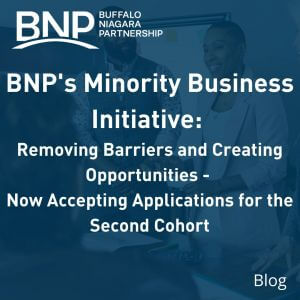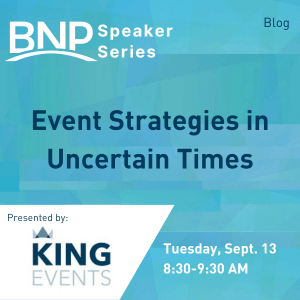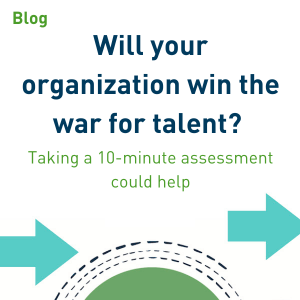Understanding Cultural Humility
September 15, 2022
Blog Categories
Anna-Lesa Calvert to present during D&I Virtual Learning Series
 Cultural humility. The term may be unfamiliar, but it is a critical component to any organization’s diversity, equity, and inclusion efforts.
Cultural humility. The term may be unfamiliar, but it is a critical component to any organization’s diversity, equity, and inclusion efforts.
Anna-Lesa Calvert, Manager of Professional Development and Diversity at Hodgson Russ LLP, kicks off the Buffalo Niagara Partnership’s D&I Virtual Learning Series with her presentation “Building a Culture of Inclusivity through Cultural Humility” on October 6. As a preview, we spoke with Anna-Lesa to better understand why cultural humility is so important.
Can you define Cultural Humility?
There really isn’t a set definition, but I think about cultural humility as the ability to be humble about what you do and don’t know about another culture. It’s about being curious and open to asking questions and learning about others. We’ve talked about cultural competence which promotes communication among people of different backgrounds. Cultural humility takes it to the next level where we recognize there is still much we don’t know and we are intentional in finding out more.
How should employers and employees think about cultural humility?
If organizations want to create environments that are inclusive, cultural humility should be a goal. That means employers should be willing to allow employees and associates to bring their whole selves to work, creating a safe space. It also means co-workers should be curious and interested enough about one another to take steps to learn more.
How does it play a role in everyday work life?
Cultural humility helps create a culture in which everyone feels safe. It requires every employee or associate to do the inner work, in other words, the self-reflection needed to grow and learn. Cultural humility provides a space for learning.
Why is an understanding of this topic important for employers and employees?
If your organization is fully committed to DE&I, you are committed to cultural humility. It is important for employees because it affects how they work together day in and day out, creating a workplace where they can feel safe and comfortable among one another.
Do you have an example of when this made a difference in one's work environment?
One example involves the different holidays celebrated by different cultures. Easter, Ramadan and Passover have recently fallen within the same month and our firm has colleagues who celebrate one or the other. We created opportunities to ask questions and learn about the different holidays. We shared different cultural recipes enjoyed during these celebrations. It allowed us to highlight cultural differences, but it also revealed what connects and makes us all so similar.
Related Posts
Collaborate on inclusive leadership with the D&I Executive Exchange
The BNP’s Diversity & Inclusion Executive Exchange provides a unique, peer-to-peer forum for leaders to collaboratively share skills and strategies in D&I practices. Designed specifically for senior leaders with the highest level of responsibility for D&I initiatives, the program is facilitated by our expert in residence Sesha Yalamanchili.
Cultural humility. The term may be unfamiliar, but it is a critical component to any organization’s diversity, equity, and inclusion efforts.
BNP’s Minority Business Initiative: Removing Barriers and Creating Opportunities –
The Minority Owned Business Initiative (MBI) is entering its second year in 2023. This initiative seeks to help break through the barriers that have historically challenged minority business ownership and create a pathway to board membership for participants.
Speaker Series: Event Planning in Uncertain Times
Event organizers have been left questioning whether their events should go back to being in-person, remain virtual or become something in between. How do you make that decision, especially when there is still so much uncertainty? All events are unique, but the most important thing to do is to consider your audience and be prepared to pivot if you need to. Here are a few tips to help get you started.
Will your organization win the war for talent?
There are more jobs open than there are available people to fill them and so the odds are that organizations that have incredible cultures and work practices will win the war for talent.




